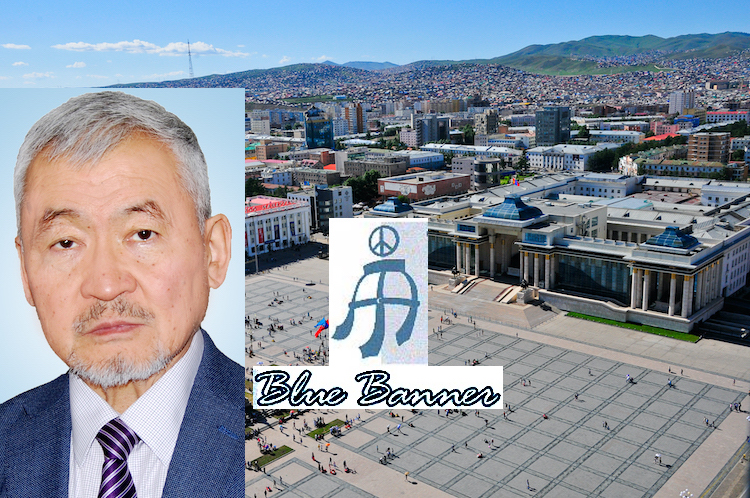Viewpoint by Dr J. Enkhsaikhan
ULAANBAATAR (IDN) – The first half of 2020 has demonstrated once again that the world has indeed become closely interconnected and that cooperation of states and other stakeholders is imperative to deal with the current three existential threats that know no borders: the existence of weapons of mass destruction, the climate change and the COVID-19 pandemic. [2020–06-26] JAPANESE | NORWEGIAN
Inaction or indifference to such threats is in itself developing into a fourth such threat. It is also witnessing increased great power political and economic rivalry that can adversely affect the international environment.
The pandemic. The above threats, especially the current pandemic, demonstrate that not unilateralism, protectionism or rivalry but rather multilateralism, mutual understanding and cooperation are needed to address the common threats and challenges meaningfully. Today the maxim that it is better to hang together rather than hang separately underlines the importance of broad cooperation rather than narrow nationalism or rivalry.
The pandemic has demonstrated that national health systems in many countries and international cooperation in promoting public health are still weak in facing the pandemic and that even the developed world was incapable of effectively countering. Time was lost to take the necessary measures, to exchange vital information and experience on how best to address it. Developing an effective vaccine should bring together not only scientists and doctors, but the entire world. Hopefully, the world will also work closely together in addressing the other existential threats.
Weapons of mass destruction, including nuclear, biological and chemical weapons, pose another clear existential threat to humankind. Mindful of the COVID-19 pandemic the 1972 Bacteriological (Biological) weapons convention needs to be looked again to preclude weaponizing pandemics.
As to nuclear weapons, its threat has not been eliminated with the end of the cold war. On the contrary, the number of nuclear-weapon states has increased. Though in the post-cold war three decades the number of nuclear weapons possessed by the U.S. and Russia has quantitatively been reduced, the threat of atomic weapons has not decreased but in fact, is increasing.
The essential U.S.-Russian bilateral nuclear arms elimination or reduction agreements have been revoked, while some others are being torpedoed. Hypersonic, space and some other advanced weapons and weapons systems are being developed, while the threshold of the use of nuclear weapons is being lowered by reducing their yield.
There are talks of even resuming nuclear weapons testing which can have a far-reaching domino effect. The non-proliferation regime is being weakened due to refusal of the nuclear-weapon states, parties to the NPT, to implement their commitment to “pursue negotiations in good faith on effective measures relating to cessation of the nuclear arms race at an early date and to nuclear disarmament”.
Unilateral withdrawal from a multilateral agreement on Iran’s nuclear program risks to unravel the deal. Talks on denuclearizing the Korean peninsula are stalled due to unwillingness of the sides to make serious commitments.
These troubling events are underway while it has been demonstrated that in case nuclear weapons were to be used either by design, due to human or systemic error or even accidentally, the threat will be, unlike the current pandemic, instantaneous with much larger casualties in which case also well-trained and dedicated physicians would practically be helpless.
Knowing well the devastating humanitarian consequence of the use of nuclear weapons as witnessed in Hiroshima and Nagasaki in 1945 and the testimonies of the Hibakushas, in 1980 physicians of various countries have established a non-partisan professional organization known as the International Physicians for the Prevention of Nuclear War (IPPNW) that had declared that physicians would be helpless in providing adequate medical assistance to the victims and that the best remedy available is the prevention of such a catastrophe in the first place.
The recent studies on humanitarian consequences of the use of nuclear weapons have convincingly demonstrated that the use of even a few of such weapons would result in hundreds of thousands of instantaneous deaths followed by much more agonizing deaths and sufferings of peoples and that it would also cause catastrophic disruptions in the global climate leading to the so-called nuclear famine.
Role of the mass media. The revolution underway in the means of mass communication is making the media the most direct source of information for the general public. Today it is expected to play an important role in raising public awareness, shaping public attitudes and opinions, and through the activities of peoples affect the ultimate decision-makers – the governments.
However, the media should not be a mere transmitter of widely available information since the latter includes both objectives, fact-based information as well as biased ones or the so-called fake news that can affect the users.
The media should not follow the logic that “good news is bad news” or “bad news is good news” but should promote the strengthening of peace, security and mutual understanding of peoples by serving as a responsible and effective means of providing objective information, showing the larger picture and the effects and by contextualizing the issues involved making sure that people understand well the issues involved, the challenges and opportunities and become actively involved in promoting the issues directly or through groups that share the same or identical views. [IDN-InDepthNews – 26 June 2020]
Collage of the photos of Dr J. Enkhsaikhan on the left, Blue Banner and Chinggis Khaan (Sükhbaatar) Square in Mongolia’s capital city Ulaanbaatar on the right (CC BY-SA 4.0).




